Johannes A. Schubert
Centaur: a foundation model of human cognition
Oct 26, 2024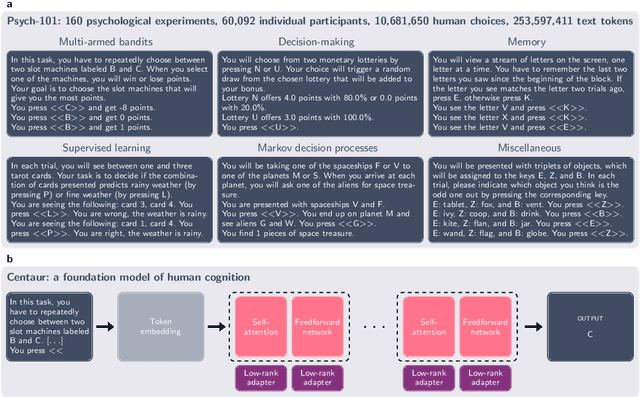
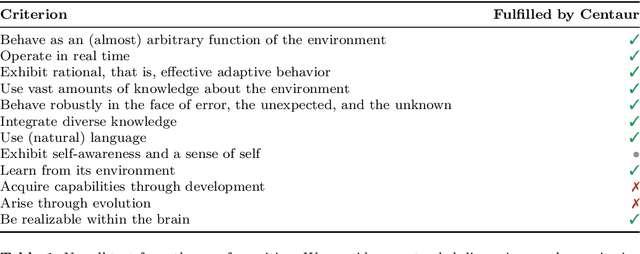
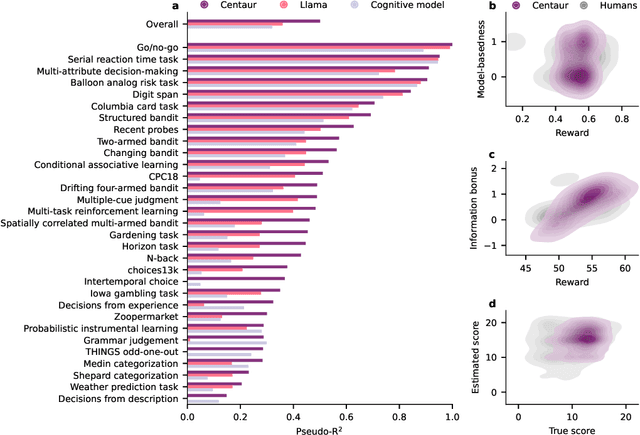
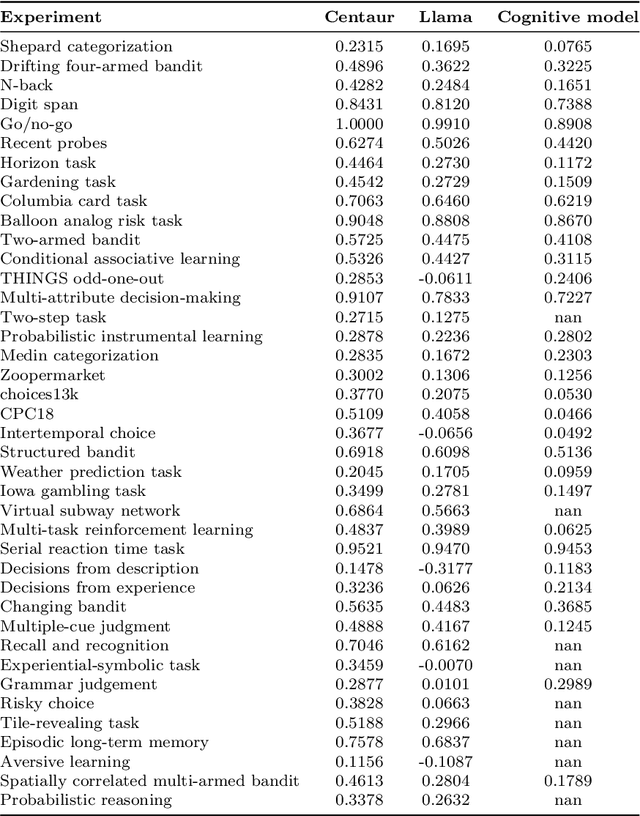
Abstract:Establishing a unified theory of cognition has been a major goal of psychology. While there have been previous attempts to instantiate such theories by building computational models, we currently do not have one model that captures the human mind in its entirety. Here we introduce Centaur, a computational model that can predict and simulate human behavior in any experiment expressible in natural language. We derived Centaur by finetuning a state-of-the-art language model on a novel, large-scale data set called Psych-101. Psych-101 reaches an unprecedented scale, covering trial-by-trial data from over 60,000 participants performing over 10,000,000 choices in 160 experiments. Centaur not only captures the behavior of held-out participants better than existing cognitive models, but also generalizes to new cover stories, structural task modifications, and entirely new domains. Furthermore, we find that the model's internal representations become more aligned with human neural activity after finetuning. Taken together, Centaur is the first real candidate for a unified model of human cognition. We anticipate that it will have a disruptive impact on the cognitive sciences, challenging the existing paradigm for developing computational models.
In-context learning agents are asymmetric belief updaters
Feb 06, 2024
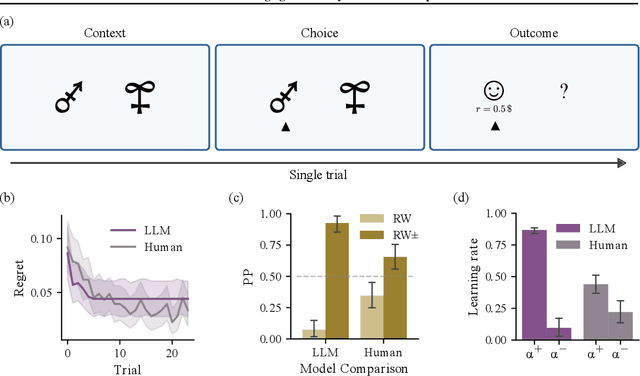
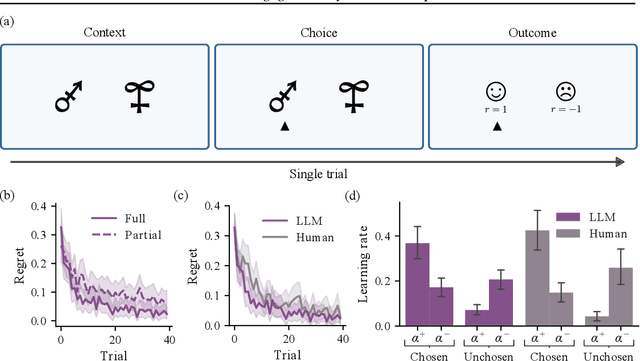
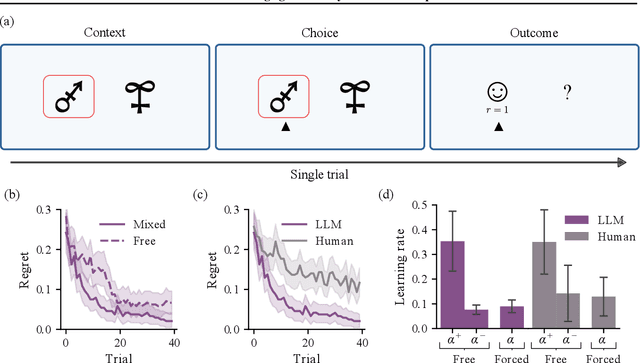
Abstract:We study the in-context learning dynamics of large language models (LLMs) using three instrumental learning tasks adapted from cognitive psychology. We find that LLMs update their beliefs in an asymmetric manner and learn more from better-than-expected outcomes than from worse-than-expected ones. Furthermore, we show that this effect reverses when learning about counterfactual feedback and disappears when no agency is implied. We corroborate these findings by investigating idealized in-context learning agents derived through meta-reinforcement learning, where we observe similar patterns. Taken together, our results contribute to our understanding of how in-context learning works by highlighting that the framing of a problem significantly influences how learning occurs, a phenomenon also observed in human cognition.
 Add to Chrome
Add to Chrome Add to Firefox
Add to Firefox Add to Edge
Add to Edge